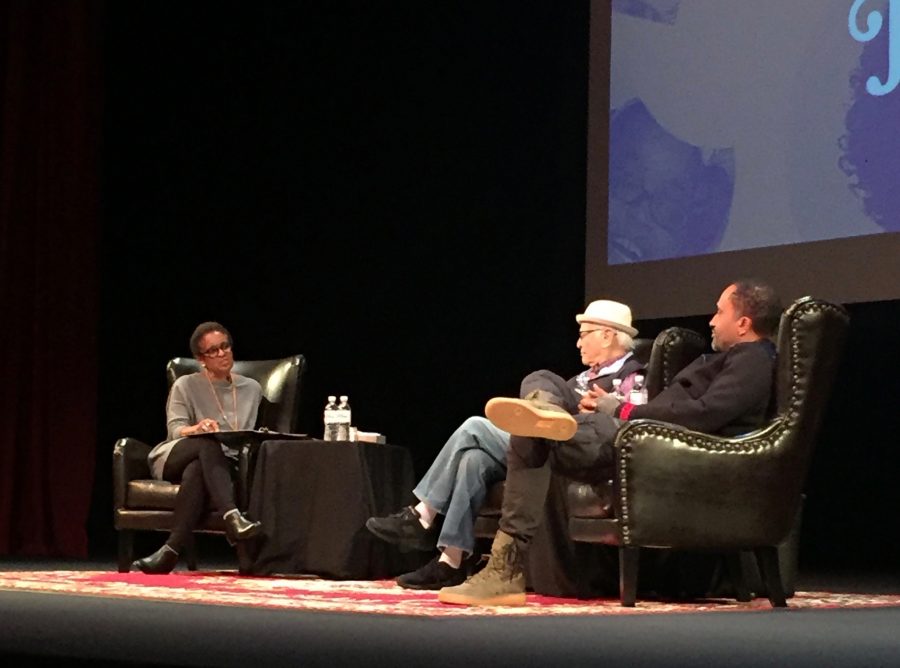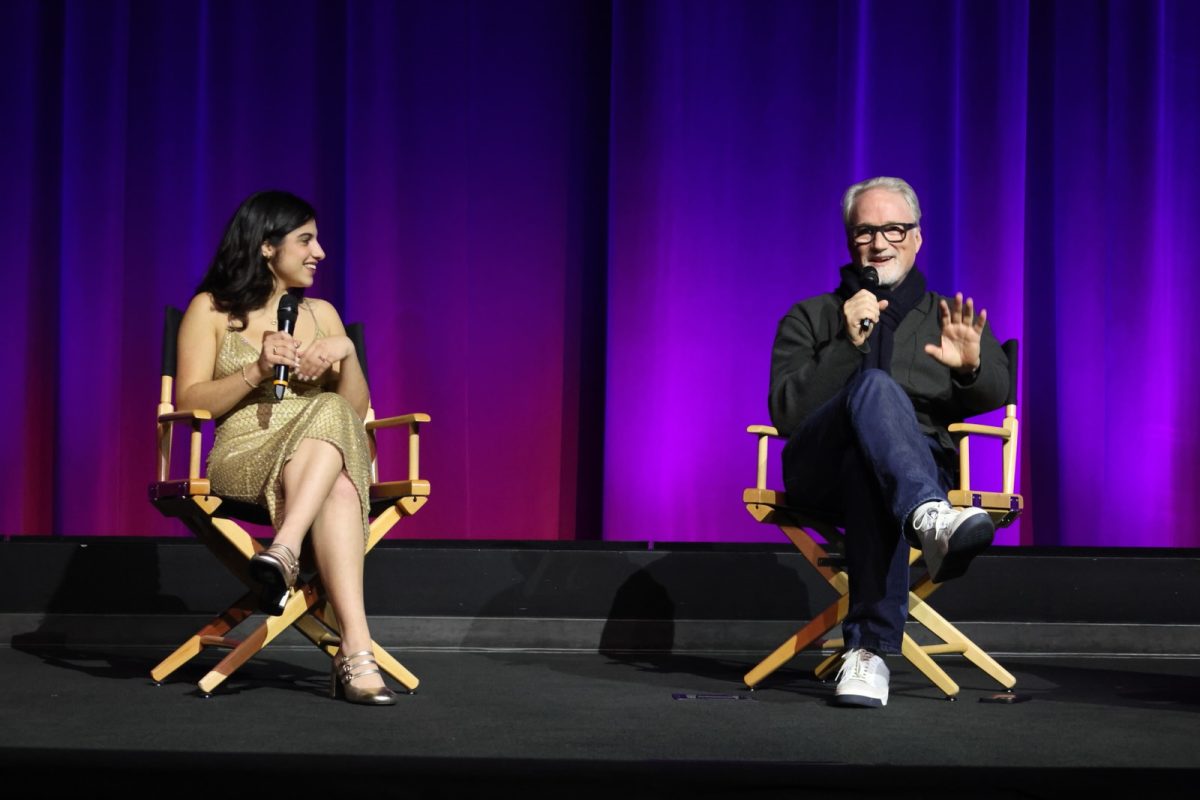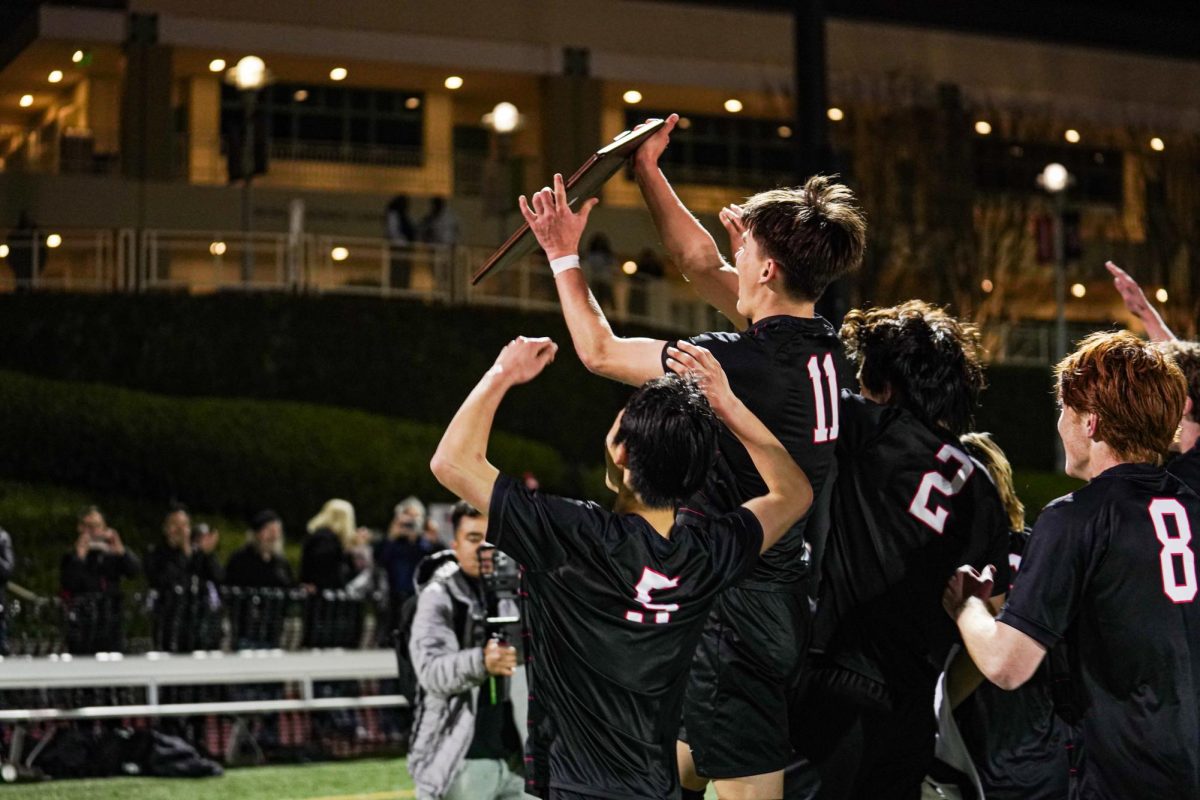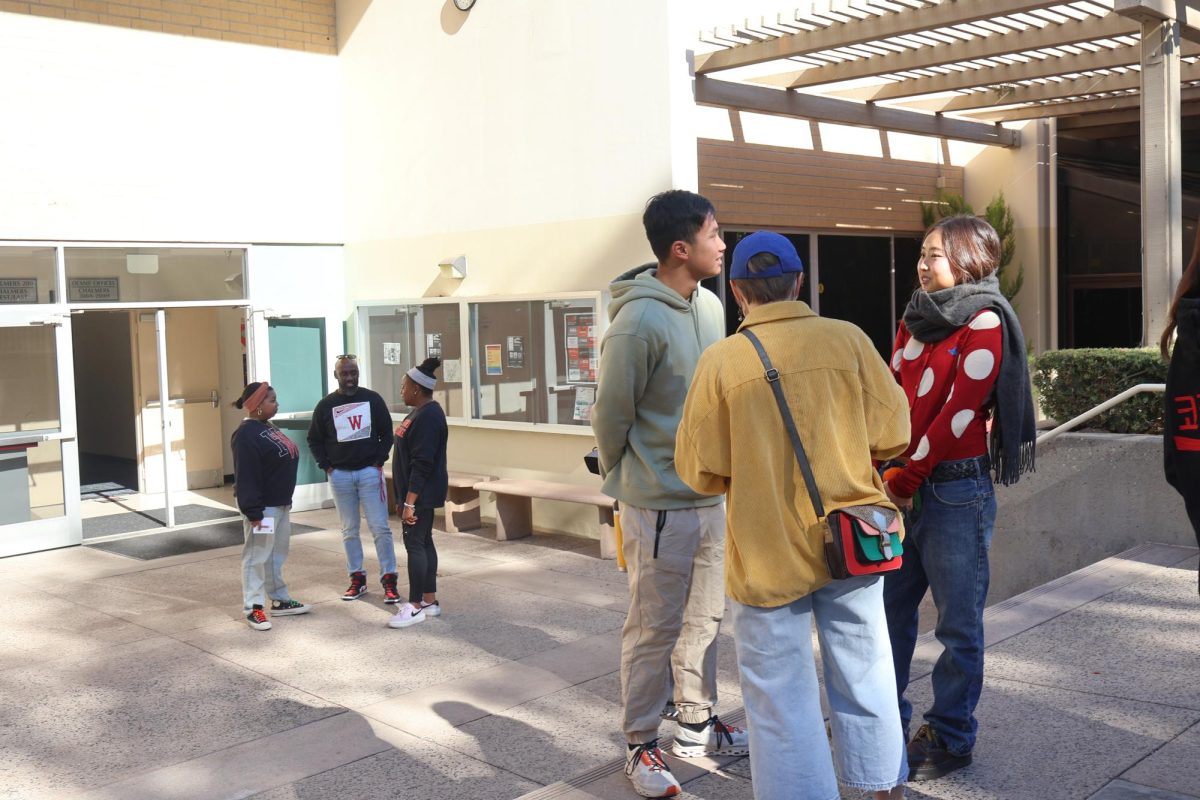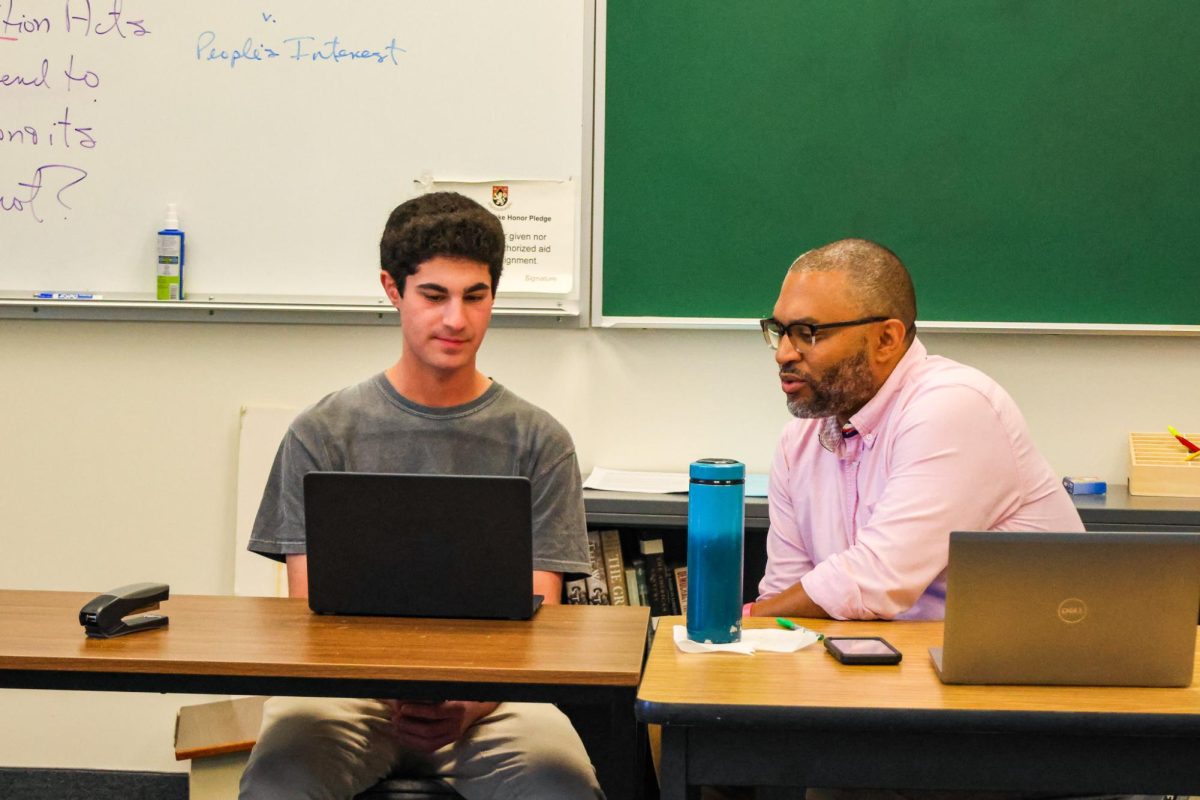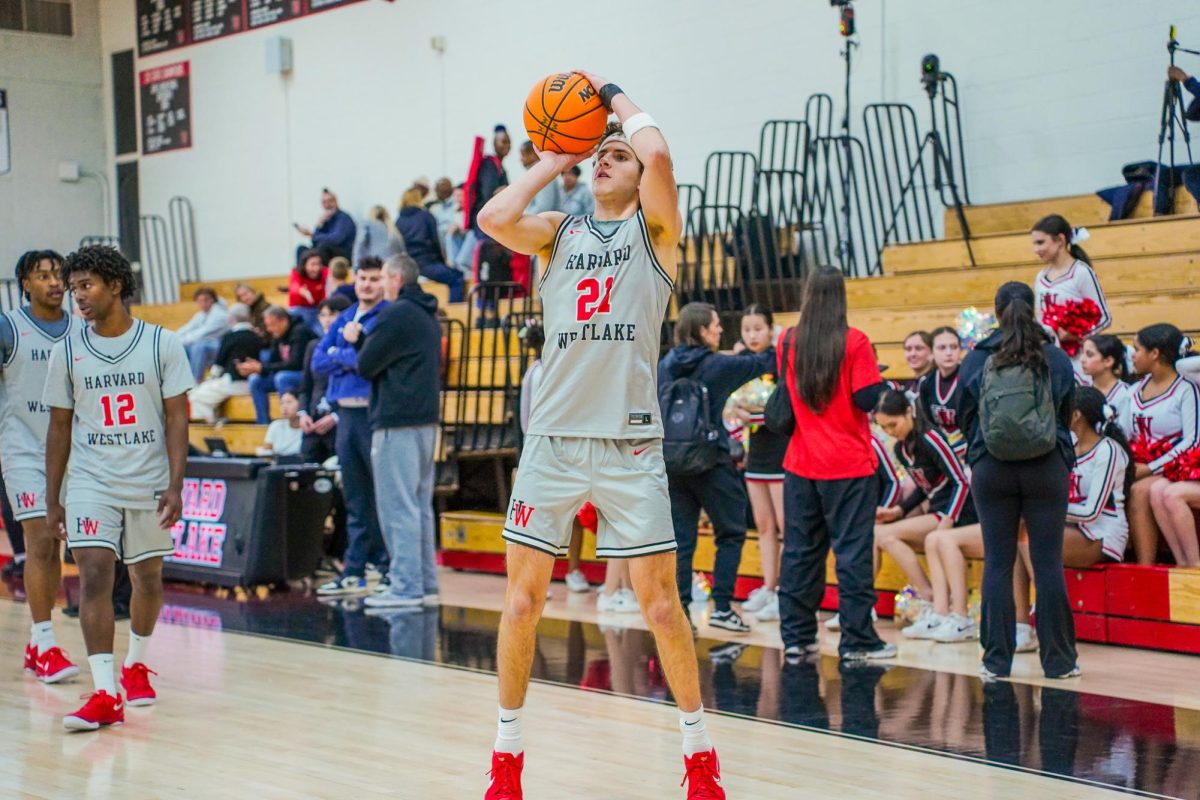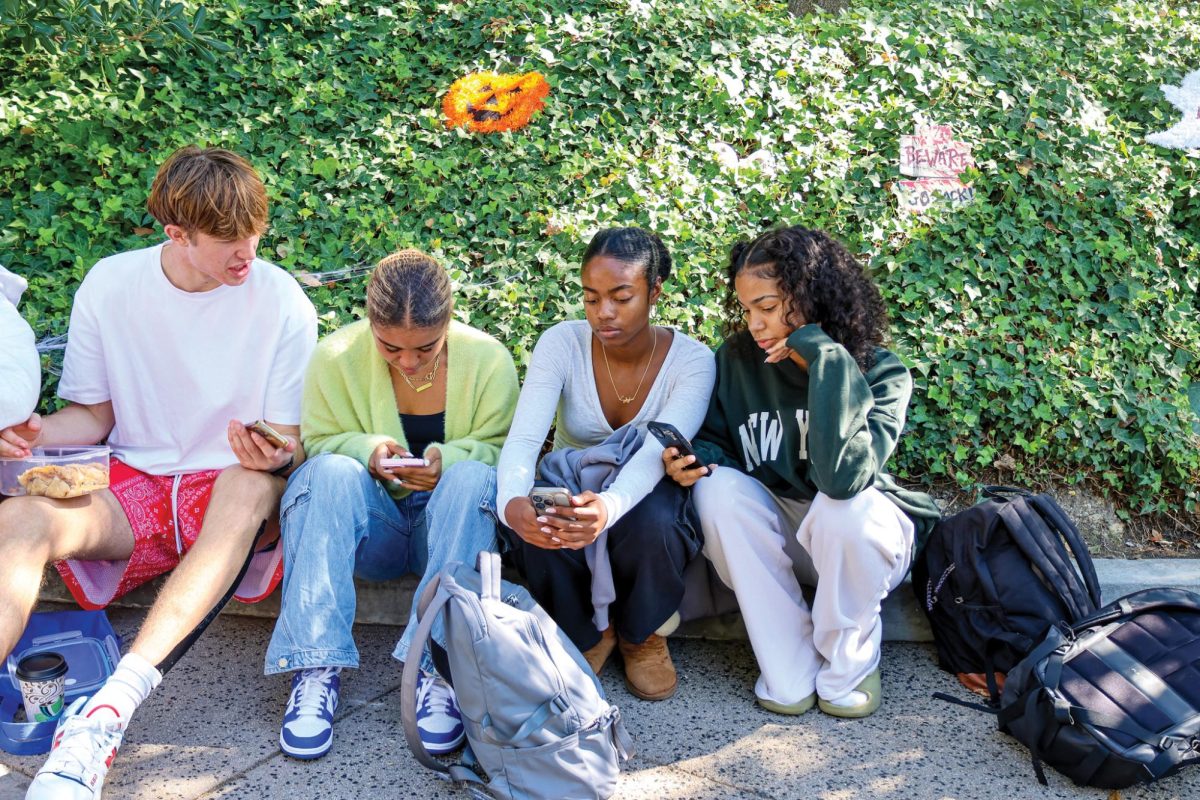Speakers discussed racial diversity at the Middle School yesterday, ranging from ideas about the media’s influence on the election to the importance in bridging cultural divides.
The public forum, “All in the (black-ish) Family,” featuring “All in the Family” and “The Jeffersons” creator Norman Lear (Madeline ’13) and “black-ish” and “America’s Next Top Model” co-creator Kenya Barris (Leyah ’19), guided students to understand humanity as inclusively and as a whole, Lear said to the Chronicle.
“I don’t think there is anything more important than understanding what I call our common humanity,” Lear said. “[People] use the expression easily and loosely of ‘brother and sister,’ but they don’t really accept between the races and religions of the problems we have. We want to be resolved by that common humanity, and what [Barris] is doing with his show is helping in that direction.”
Audience members also watched video clips of “All in the Family” and “The Jeffersons” to demonstrate the show’s stance on current events.
“I learned about how impactful television was for people across many eras and generations, and how sitcoms can respond to issues like race relations,” Charlie Kogen ’20 said.
The speakers addressed television’s push for a more diverse set of actors and actresses, Lauren Lapsarde ’17 said.
“Hearing [the speakers] all speak on how they try to encapsulate American visions and break them down so people may understand them was amazing,” Lapsarde said. “More people are becoming a subject of what they watch on television unconsciously so being able to address diversity and race via television in the effective way that they have is promising and hopeful. As the television transitioned from black and white to color, so did the people on the television, and in this way, diversity is occurring both literally and figuratively.”
Visual Arts Department Head and event organizer Cheri Gaulke said the event was successful in its goal of broaching the idea of the large impact of the television industry.
“It’s very easy to become relaxed about the privileges of one’s time, but it is important to know that today is a result of the brave work of people that have come before,” Gaulke said. “I want students, especially those going into television and film, to know that it does matter. You can use it to help society grow and having a social conscience doesn’t mean you can’t also be entertaining, even funny. [Lear and Barris’] shows demonstrate that beautifully.”





























